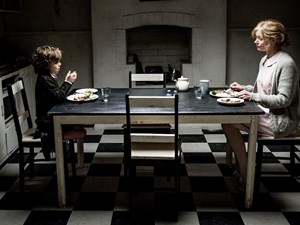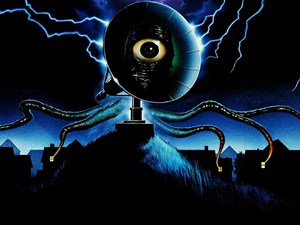Realism and Mysticism in Three Italian Films
How would you like to escape to the rolling hills, deep, blue waters, and narrow, winding streets of Italy? This month, Showroom Cinema’s programme features a trio of Italian cinematic gems, including two from visionary director Alice Rohrwacher and a pioneering classic from Roberto Rossellini. These films unpack enigmatic stories of outsiders, peasants, and Nazi occupation.
In La Chimera, a British archaeologist mourning his lost love joins a group of grave robbers hunting ancient Etruscan treasures to sell on the black market. The tale transports us to 1980s Tuscany, where Josh O'Connor's (Challengers) protagonist tries to reconnect with friends, as he is mystically drawn to lost artefacts and the world of the dead. Icon Isabella Rossellini (Blue Velvet) - daughter of Roberto Rossellini - makes a memorable appearance as an isolated aristocrat. The spellbinding journey sees O’Connor’s hero attempt to break free from the past and resist the magnetic pull of darkness.
To celebrate the release of La Chimera, Showroom is reviving Rohrwacher's 2018 masterpiece: the Palme d’Or-nominated Happy as Lazarro. Lazarro is an innocent sharecropper whose life is turned upside down by his friendship with the farm owner's son. This story of exploitation is brightened by miracles and fantasy, and satirises feudalism and capitalism alike.
Finally, Showroom is screening Roberto Rossellini’s landmark film Rome, Open City: a dramatic portrait of a city under occupation, shot in 1945. This dark drama follows citizens in the Resistance trying to survive under Nazi rule. Rossellini was a trailblazer of the raw, neorealist style of cinema in post-war Italy, characterised by stories set amongst the working class, often filming on location with non-professional actors.
Filmmakers such as Martin Scorsese have been deeply affected by the 'Golden Age' of neorealist cinema that emerged from the ruins of wartime. The humanist films give us a window into the lives of everyday people without privilege, shaped by the society of their time. They face hardship and powerful political systems, but the characters still find solace in solidarity and the beauty of nature.
Rohrwacher continues the neorealist tradition and evolves it further in her modern fables exploring our relationship with the countryside and history. Both Happy as Lazarro and La Chimera have been labelled as ‘magical realism’ for their incorporation of supernatural elements.
Join us to explore realism and mysticism in Italian cinema. La Chimera screens from Friday 10 May, while Happy as Lazzaro and Rome, Open City screen from Friday 17 May.
Book now: /guide/?s=M



